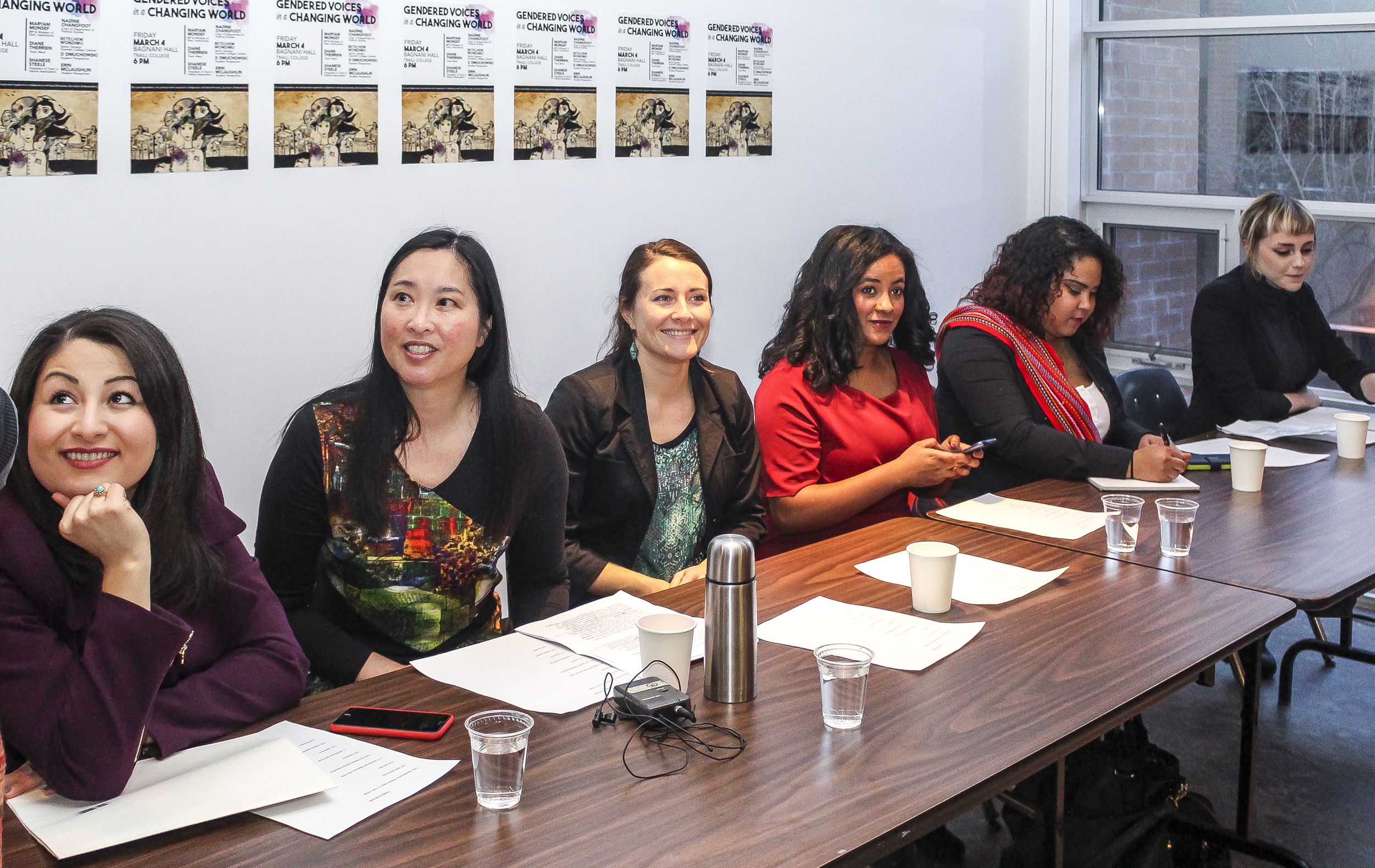

In light of International Women’s Day, two Trent alumni took it upon themselves to take the international day to new heights in Peterborough.
On March 4, Arthur co-editor Zara Syed and former Arthur editor Sara Ostrowska organized a panel discussion to raise awareness and provide a safe space for discussion surrounding women and minorities in Canadian politics.
The event was titled Gendered Voices in a Changing World, and it was heartwarming to see the level of interest for this event.
Over one hundred people – young, old, black, white, brown, male, female and everything in between – took their seats or found some space at the back of the jam-packed Bagnani Hall that evening to listen to the seven panelists from just about every cultural denomination.

Each panelist brought a unique and fresh perspective of a wide range of minority interests, as well as stories from their own past that influenced them to create a change in the political sphere and be a part of the change movement.
Syed and Ostrowska, in a publication sent into the Trent Alumni newsletter, commented on what inspired them to go through with the daunting task of organizing such a powerful event.
“As a team, [we] were inspired to run this event because of [our] involvement in a previous panel event called, “Women in Politics: A Roadmap” led by Betsy McGregor.
“Though [we] saw this panel as a tremendous step in working towards a better world for politics, [we] immediately noticed a lack of diverse voices and wanted to run a similar event that was more comprehensive and relevant to the modern political landscape of Canada.
“Gendered Voices in a Changing World was a critical discussion about intersectional feminism, the gender gap in politics, how these gender gaps affect our everyday seemingly non-political lives, health and well-being, gender equality in academic settings and how minorities can make change (through and without government).”

Laura Greenwood, a graduate student in the cultural studies PhD program at Trent, and a six-year political studies teaching assistant veteran, spoke with us regarding the panel event.
“In attending an event about gender and politics, I was glad that the discussion went beyond thinking about “capital P politics” or electoral/government politics alone.
“While it can be valuable to take note of, for example, under-representation at various levels of government, this doesn’t exhaust the many issues that pertain to ‘Gendered Voices in a Changing World’ and addressing electoral politics alone doesn’t offer ways to really, truly address the many systems of oppression that exist today – far from it,” said Greenwood.
She elaborated on her point by going deeper into how this conversation was a refreshing dive into an under-represented area of the political sphere.
“The discussion drew attention to social movements, including Black Lives Matter and Idle No More, and focused attention on the interrelation and intersections of a myriad of forms of oppression, including heteropatriarchy, cissexism, racism, colonialism, ableism, capitalism, and more, which are absolutely crucial connections to make.
“None of these systems of oppression operate in isolation or independently from one another, so it is impossible to really meaningfully challenge any one system of oppression on its own.
“It is crucial to truly listen to and center the voices and experiences of those who are most impacted in thinking about approaching these struggles.”

The fact that there was such a large and supportive turnout for open dialogue on these topics only reinforces that statement.
These are conversations that allow us to voice our opinions on the direction government reform should be headed, as the democratic model was intended for. These sorts of panel discussions allow us a safe intellectual space where we are free to continuously challenge the “way things always have been.”
Greenwood leaves us with a powerful message of the discourse for the future.
“It’s crucial to continually discuss and act in fighting against and dismantling oppression in everything we do, which includes identifying ways in which we have failed, in order to better confront oppressive power dynamics moving forward.

“A fruitful discussion can contribute to furthering these goals, but ongoing action beyond any one conversation is needed. I hope that many conversations contributed to in the context of this event continue to happen going forward.”
The hashtag #ChangingPolitics was used to live tweet the event. For those that missed it, the discussion can still be found on Twitter.
Ostrowska and Syed hope to keep the conversation going about how we can continue to change the discourse surrounding politics.


